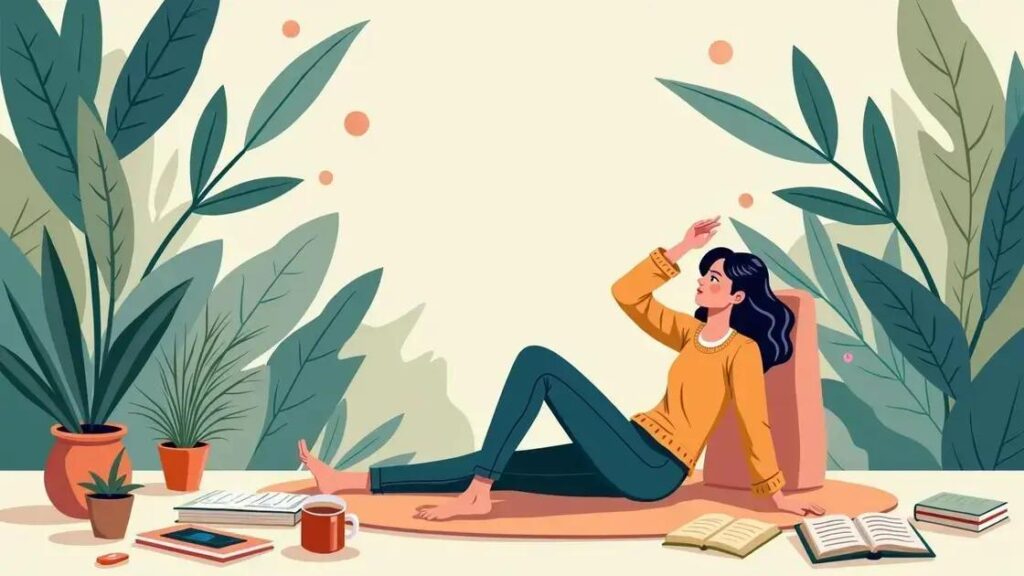The importance of regular breaks for mental clarity and focus lies in their ability to recharge the mind, enhance productivity, boost creativity, and reduce stress, making them essential for maintaining optimal performance in both work and study environments.
In our fast-paced world, the importance of regular breaks for mental clarity and focus is often overlooked. Breaks are not just a luxury; they are essential for maintaining productivity and enhancing our cognitive abilities. Research shows that stepping away from our tasks can lead to improved concentration, reduced stress, and higher creativity levels. In this article, we will delve into the science behind mental breaks, explore their benefits, and provide practical tips on how to incorporate them into your daily routine.
Understanding Mental Clarity

Mental clarity is the state of being clear-minded and focused. It allows us to think more effectively and enhances our ability to process information.
Why Mental Clarity Matters
Having mental clarity is essential for making informed decisions and solving problems efficiently. When our minds are cluttered, it’s hard to concentrate, which affects our productivity and creativity.
Factors Affecting Mental Clarity
Various factors can influence our mental clarity, including stress, fatigue, and distractions. High stress levels can cloud our judgment and reduce our ability to think logically. Similarly, lack of sleep can lead to foggy thinking.
How Breaks Impact Mental Clarity
Taking regular breaks is one of the most effective ways to regain mental clarity. A short pause allows the brain to recharge and reduces cognitive overload. After a break, we often return to our tasks with fresh eyes and improved focus.
Research shows that working for long periods without breaks leads to decreased performance and an increase in errors. In contrast, those who take regular breaks generally report higher levels of creativity and enhanced problem-solving skills.
Creating a Mental Clarity Routine
To promote mental clarity, consider incorporating simple practices into your daily routine. Techniques like mindfulness, meditation, or even deep-breathing exercises can significantly enhance your ability to concentrate. Additionally, planning scheduled breaks during the day can help maintain your mental agility.
Benefits of Taking Breaks

Taking breaks during work or study time has multiple benefits that enhance overall performance and well-being. One of the main advantages is increased productivity. When we step away from our tasks, we allow our brains to recharge, which leads to sharper focus when we return.
Boosts Creativity
Another benefit is the boost in creativity. Breaks provide the opportunity for our minds to wander and make new connections. This often results in creative ideas that may not come during focused work.
Reduces Stress
Regular breaks can also help reduce stress levels. When we are constantly working without stopping, stress tends to build up, making it hard to stay motivated. Taking a short break gives us a moment to relax and return with a refreshed mindset.
Improves Mental Health
Frequent breaks improve mental health by preventing mental fatigue. Continuous work can lead to burnout, which negatively impacts both our emotional and psychological well-being. Brief pauses help mitigate this risk and promote a healthier work-life balance.
Enhances Learning
Lastly, taking breaks enhances learning retention. Studies suggest that spacing out study sessions and including breaks improves memory and understanding of materials. This means that breaks aren’t just helpful for work but also critical for effective learning.
Tips for Effective Breaks

To make the most of your breaks and keep your mind fresh, follow these tips for effective breaks.
Set a Timer
Use a timer to remind yourself to take breaks regularly. Try a method like the Pomodoro Technique, where you work for 25 minutes and then take a 5-minute break. This helps maintain focus without overwhelming yourself.
Change Your Environment
During breaks, change your surroundings. If you work at a desk, step outside or go to a different room. A new setting can refresh your mind and improve your mood.
Engage in Physical Activity
Engaging in light exercise, like stretching or a short walk, can significantly enhance blood flow and increase alertness. Physical movement can help shake off the fatigue and improve your overall mental clarity.
Practice Mindfulness
Use your break time for mindfulness practices. Taking deep breaths, meditating, or simply focusing on your surroundings can help reduce stress and enhance mental focus.
Limit Screen Time
During breaks, try to step away from screens. Instead of scrolling through social media, opt for activities that don’t involve digital devices, like reading a book or doodling. This can help decrease eye strain and mental fatigue.
Stay Hydrated and Nourished
Make sure to drink water and have healthy snacks during your breaks. Staying hydrated and nourished can support your energy levels and keep your concentration sharp.
Creating a Break-Friendly Environment

Creating a break-friendly environment can significantly enhance your productivity and mental clarity. Here are some effective ways to make your workspace more conducive to breaks.
Designate a Break Area
Set up a specific area for breaks away from your main work desk. This could be a comfortable chair or a separate room where you can relax and unwind. Having a dedicated space encourages you to take breaks regularly.
Incorporate Comfort
Make sure your break area is comfortable and inviting. Use soft cushions, relaxing colors, and pleasant lighting. A cozy atmosphere can help you relax more fully and return to work refreshed.
Utilize Nature
If possible, position your workspace near windows or in a garden. Access to natural light and views of nature can improve your mood and reduce stress. Take breaks outdoors whenever you can to feel more rejuvenated.
Keep Healthy Snacks Handy
Stock your break area with healthy snacks like fruits, nuts, or yogurt. This promotes better eating habits and allows you to refuel your body during breaks.
Limit Distractions
Ensure that your break time is not interrupted by work-related distractions. Turn off notifications on devices and set boundaries with colleagues about break times to create an atmosphere of relaxation.
Make It Fun
Incorporate fun activities into your break times. Consider adding a small game, a puzzle, or reading material that interests you. Engaging in enjoyable activities can help clear your mind and lower stress levels.
In Conclusion, Embrace the Power of Breaks
Regular breaks are essential for maintaining mental clarity and focus in our fast-paced world. They help recharge our minds, boost creativity, and reduce stress levels.
By understanding the importance of mental clarity, recognizing the benefits of taking breaks, and following effective strategies, you can create a healthier work environment that fosters productivity.
Creating a break-friendly space is not just about comfort; it’s about enhancing your overall well-being and job satisfaction.
Incorporate these practices into your daily routine, and you’ll notice a significant improvement in your focus and performance. Embrace the power of breaks and unlock your full potential!
FAQ – Frequently Asked Questions about Breaks for Mental Clarity and Focus
Why are regular breaks important for mental clarity?
Regular breaks help recharge your mind, improve focus, boost creativity, and reduce stress levels, allowing for better overall performance.
What are some effective ways to take breaks?
Effective ways to take breaks include using the Pomodoro Technique, changing your environment, engaging in physical activity, and practicing mindfulness.
How can I create a break-friendly environment?
Creating a break-friendly environment involves designating a specific area for breaks, ensuring comfort, utilizing nature, and providing healthy snacks.
What are some benefits of taking breaks?
Taking breaks can lead to increased productivity, reduced stress, improved mental health, and enhanced learning retention.
How long should breaks last?
Breaks can vary in length, but short breaks of 5-10 minutes every hour or longer breaks of 15-30 minutes every few hours can be very effective.
Can breaks really improve my job performance?
Yes, taking breaks can significantly enhance your focus and creativity, leading to better job performance and overall satisfaction at work.













